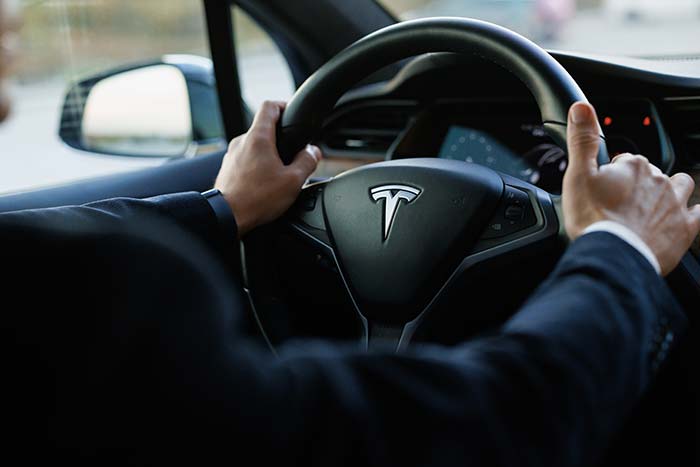Tesla (Nasdaq: TSLA), the electric vehicle pioneer that’s revolutionizing transportation, has been on quite a journey. From its early days as a niche luxury carmaker to its current position as a global automotive powerhouse, the company has transformed how we think about cars, energy, and technology.
I evaluated Tesla in April and gave it an “Appropriately Valued” rating… but a lot has changed since then.
The stock’s recent performance has been nothing short of explosive. After hitting a low near $110 in early 2023, shares have skyrocketed nearly 300% to around $427. The stock has doubled over the past couple of months as investors have bet big on the company’s artificial intelligence initiatives and autonomous driving potential.
But with such a dramatic rally, the key question is: Has Tesla’s stock gotten ahead of itself?
Let’s run it through The Value Meter to find out.
First, let’s look at Tesla’s enterprise value-to-net asset value (EV/NAV) ratio, which tells us how much investors are paying for the company’s assets. Tesla’s EV/NAV sits at 13.52 – more than double the average of 6.22. In other words, investors are paying more than twice as much for Tesla’s assets.
However, that premium isn’t necessarily unreasonable when you consider Tesla’s ability to generate cash.
The company has churned out positive free cash flow in three of the past four quarters – no small feat given the capital-intensive nature of auto manufacturing. Its free cash flow averaged 1.39% of its net assets during this period, which is about one-third of the 4.12% average among similar companies.
These metrics paint an interesting picture. While Tesla commands a rich valuation, its ability to consistently generate cash flow – albeit at lower levels than some peers – suggests the premium isn’t entirely unjustified.
The company’s strong brand, technological edge in EVs, and expanding energy business also provide multiple avenues for future growth.
The company’s third quarter revenue hit $25.2 billion, up 8% year over year, while net income climbed 17% to $2.2 billion. These results show Tesla isn’t just innovating – it’s building a profitable business at scale.
However, the company faces mounting challenges as well. Competition in the EV space is intensifying, with traditional automakers and new entrants alike pouring billions into electric vehicles. Price cuts have pressured margins, and macroeconomic headwinds could impact consumer demand.
When we weigh these factors against Tesla’s current valuation and cash-generating capabilities, the stock appears to be trading right about where it should be – even after its impressive rally. While the company’s innovation and market position justify a premium valuation, the current price adequately reflects both its opportunities and its challenges.
The Value Meter rates Tesla as “Appropriately Valued.”

What stock would you like me to run through The Value Meter next? Post the ticker symbol(s) in the comments section below.

